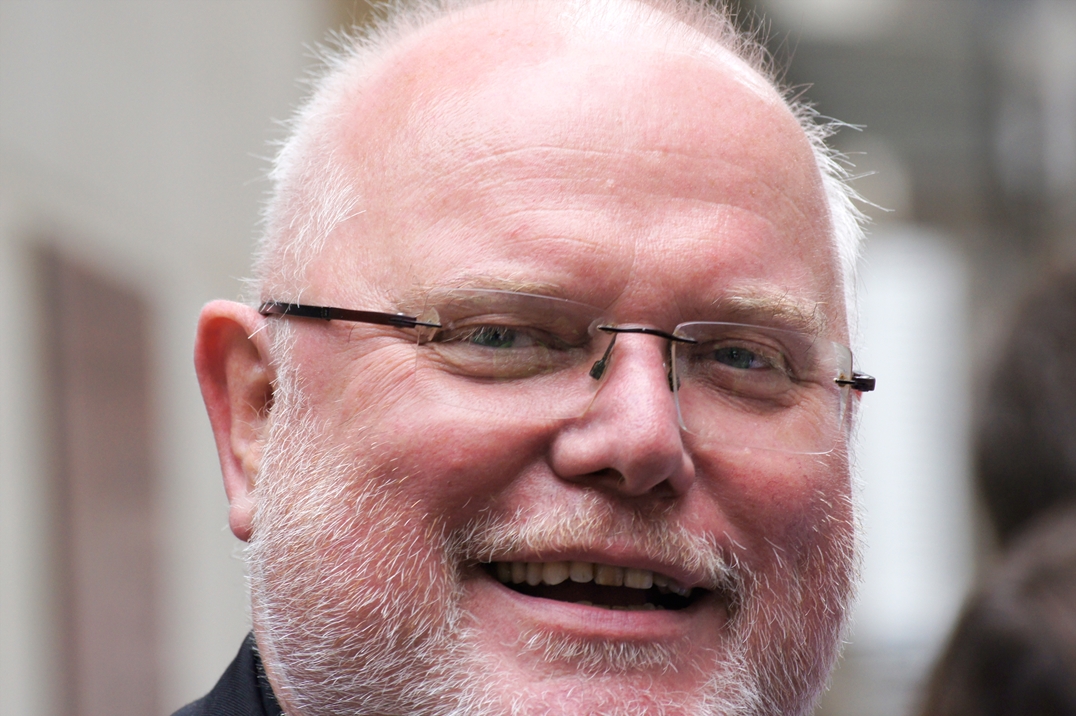The critique by Cardinal Marx of the new Bavarian prime minister’s decree to place crosses in all state offices received enormous attention in the media and on social networks.
And rightly so: at a time when Christianity in Germany is struggling to survive, the chairman of the Bishops’ Conference torpedoed a measure that should give Christianity more visibility in its own country.
Accordingly, the reactions expressed:
While Christians of all denominations, who recognize the seriousness of the (un-) religious situation, reacted with bewilderment and disgust to the statements of the archbishop of Munich, those who long for a secular and atheistic Germany cheered.
The attack from Cardinal Marx on the attachment of crosses to state bureaus testifies to a true disdain for the interests of Christianity in Germany, yet Marx”s reaction came as not much of a surprise.
This year alone, the head pastor of Munich has made headlines that raise doubts as to whether he cares about the good of the Catholic Church and Christianity in Germany.
For example, in an interview with Bayerischer Rundfunk, he supported Bishop Franz-Josef Bode’s demand to bless same-sex couples. This request generated a lively debate that came to an end only when, one month later, he stated that he had “not meant it that way.” The Catholic public shook its head over so much cynicism.
Shortly thereafter, he presented his ideas on intercommunion in mixed marriages. It was justified with tricks and ecclesiastical quibbles: at the local level, the pastors should decide whether it would be possible to offer communion in individual cases to non-Catholic spouses. In this way, Cardinal Marx avoided having to write a binding episcopal document. He had previously used this trick of “single case decisions” for communion for divorced people in adulterous relationships. In this way, Cardinal Marx was involved in introducing situational ethics in the Catholic Church and at the same time pushing the “old maid” to the priests on the spot.
The attack on the crosses of state offices resembles the appeal to Catholics to invite Muslims to their homes (Good Friday 2018). In doing so, Cardinal Marx formulated an appeal to mission on the question of not faith, but acceptance.
These public interventions show that Cardinal Reinhard Marx certainly has a sense for the symbolic – not to strengthen the Catholic faith in a time of distress, but to weaken it.
To Cardinal Marx fits the opposite meaning of verse Isaiah 42:3 from Isaiah: “The bruised reed he shall not break, and smoking flax he shall not quench: he shall bring forth judgment unto truth.”
For a shepherd who behaves this way, the question arises: what authority can he claim at all?
To answer this question, a speech by Cardinal Walter Brandmüller on April 7, 2018 in Rome gives hints. According to this speech, the “sensus fidei” (sense of faith) can lead to a bishop losing not his consecration, but certainly his pastorate, because he is no longer a bishop in the eyes of the faithful.
Cardinal Brandmüller: “Negatively … the sensus fidei acts as a sort of spiritual immune system, which enables the faithful instinctively to recognize and reject any error. Leaving aside the divine promise, the passive infallibility of the Church – i.e., the certainty that the Church in its totality can never slip into heresy – also rests therefore on this sensus fidei.
Cardinal Brandmüller’s speech in the original Italian can be read here. An English translation is here.
The essential point in Brandmüller’s speech is this: believers have a light by which they know when a shepherd misleads them. Then they are not obliged to obedience, but entitled to resistance. There are enough examples in history where a similarly tragic situation occurred.
Cardinal Brandmüller:
There are … many testimonies of the important role of the laity’s witness of faith. Cardinal Newman turns our gaze to the Arian crisis in the fourth century. In that situation … the bishops failed in abundance. “They spoke variously, one against another; there was nothing, after Nicaea, of firm, unvarying, consistent testimony, for nearly sixty years.”
While the episcopate was shaken and divided, “in that very day the divine tradition committed to the infallible Church was proclaimed and maintained far more by the faithful than by the Episcopate.”
Applied to Cardinal Marx, the question arises: can one follow a shepherd who deliberately and precisely – with an “infallible” instinct – tries to disorient the faithful in some of today’s crucial issues and weaken them from attacks on faith and the church?
The answer to this question cannot come from only a few voices. We continue to watch the situation with great attention.


